The event commemorating the 200th anniversary of the birth of one of Poland’s greatest opera composers has arrived in Toronto. There came from Poland the well-known opera singers Elzbieta Kaczmarzyk, Joanna Horodko, Tomasz Janczak, and Kamil Pekala. Caroline Stanczyk and Siona Majewski, two Canadian classical singers were also invited to perform. The big event took place at the Christian Performing Arts Centre, located in Toronto’s west-end, in Etobicoke. The singers were supported by the Celebrity Symphony Orchestra, by Lechowia Dance Company and children’s choir — all of them from the Greater Toronto Area. The event was organized by maestro Andrzej Rozbicki. Andrzej Rozbicki created the Celebrity Symphony orchestra 25 years ago. “The Very Best of Moniuszko” was commemorating both anniversaries.
Stanislaw Moniuszko is Polish opera’s greatest composer. Moniuszko created 10 operas, among which “The Haunted Manor” (Straszny Dwor) and “Halka” are the best known and most often played by different opera houses. Stanislaw Moniuszko also created hundreds of songs of sacred music and secular cantatas. He was born in 1819. By the decree of Poland’s Parliament, the year 2019 has been called the year of Stanislaw Moniuszko. In Poland hundreds of musical events were organized to commemorate his name. Poland’s government also financially helped to organize hundreds of events outside of Poland. Thanks to the energy and endurance of maestro Andrzej Rozbicki, one of these events could take place in Canada.
It has to be explained that when Moniuszko created his operas, Poland did not exist as a state. Poland’s territory was partitioned among three powers: Russia, Prussia, and the Austro-Hungarian Empire. This occupation contributed to the lack of distribution and lack of popularity of Monuiszko’s music in the Western hemisphere. The years Moniuszko created his music were the darkest years of Poland’s occupation. The Polish language was not taught in public schools. In fact, in schools under Prussian and Russian occupation, the use of the Polish language was entirely forbidden. Thus, Moniuszko’s music was not popularized, and was confined mostly to Poland’s ethnic territory. Even after Poland regained independence at the end of the First World War, Moniuszko’s operas, and Moniuszko’s music did not gain popularity in Western Europe and in North America. Strangely enough I have met independently two different people from China who told me that they have seen opera “The Haunted Manor” in China. “The Haunted Manor” was only recently being shown in USA, and never in full in Canada. “The Very Best of Moniuszko” was one of the largest events in North America where, to a large extent were sung excerpts from Moniuszko’s operas, and also some other of his songs were presented to the public.
The first part of the event was dedicated entirely to Moniuszko’s music, and the second part, after the intermission, was a mix of classical music, and popular music, also including Polish popular music which is becoming classical music such as for instance the song Dead Sea (Morze Martwe).
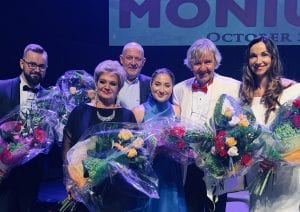 In the first part. the four singers sang parts mostly from The Haunted Manor. The story of the opera takes place in the seventeenth century, when two soldiers are coming back home. On their way, they stop in a nobleman’s manor for the night. and the story revolves around the two soldiers and young daughters of the owner of the manor. The singers sang their songs in the historical dress of the time used by the noblemen. They were supported by the dancers from Lechowia also dressed in the uniforms from that time.
In the first part. the four singers sang parts mostly from The Haunted Manor. The story of the opera takes place in the seventeenth century, when two soldiers are coming back home. On their way, they stop in a nobleman’s manor for the night. and the story revolves around the two soldiers and young daughters of the owner of the manor. The singers sang their songs in the historical dress of the time used by the noblemen. They were supported by the dancers from Lechowia also dressed in the uniforms from that time.
Elzbieta Kaczmarzyk sang the aria of Jadwiga “Dumka”. Ms. Kaczmarzyk, a mezzo-soprano matched well to the role of Jadwiga, and opened the show in a perfect manner. Stefan Janczak took the role of Stefan, one of the two soldiers, and having a smooth tenor gained the hearts of the over 1,500 listeners.
Kamil Pekala is a relatively young opera singer. He sings in five languages and has performed in many countries. He is equipped with a strong baritone. That evening he sang a couple of difficult arias. One of the most known arias was from “The Haunted Manor” is Miecznik’s aria, Mr. Pekala did a good job. As the emotions of the show were rising with each of the arias performed, the time came to the moment when Elzbieta Kaczmarzyk, Janina Horodko, Tomasz Janczak and Kamil Pekala sang “The Quartet.”. They did it perfectly. And a perfect supporting job was made by the Celebrity Symphony Orchestra. It should be mentioned that in this orchestra there is only a few musicians originally from Poland, nevertheless, the orchestra felt the spirit of the music perfectly.
Caroline Stanczyk who is born in Canada but of Polish parents and who just recently graduated from University of Toronto, sang beautifully in a perfect soprano, the song “The uncertainty”.
Mr. Rozbicki invited Ms. Siona Majewski to sing a difficult “Song of the Evening”. The song is difficult both musically and orally. Ms. Sonia Majewski was not born in Poland and acquired the Polish language through her husband. Some songs of Moniuszko were translated relatively recently from Polish to English. Ms. Majewski decided to sing in the Polish language. She did it with the accompaniment of all of the other five singers. That was the perfect finale to the first part of the evening.
The second part of the show was a combination of songs from different operas, musicals, and Polish movies, and also songs of Polish rock bands. It was a good idea to incorporate into the evening some of the songs and music for movies, and also songs sung by rock bands. Thank to movies, and the classical music that is from movies. the young generation keeps this type of music popular and alive. Good music from some movies is becoming classical. Less often, but it also happens that some music performed by rock bands is becoming classical.
The song “Dead Sea” was created by the Polish rock band Budka Suflera. The words of the “Dead Sea” may especially appeal to the community of emigrants. The song was sung in the Polish language by the duo of opera singers Joanna Horodko and Tomasz Janczak. And again, the audience liked it. What would I do further with that particular song? I would ask the Polish-Canadian jazz band “Kompot” to sing the song in the English language in order to bring the words closer to those for whom Polish language is a second language, or for these who do not know the Polish language. “Dead Sea” is a beautiful and emotional song and is worthy to be popularized in the English-speaking hemisphere. It could be used as a lure to attract young people to make them come to the concert halls, to hear classical music, and music created in Poland.
Contemporary Polish composers are quite often being invited to write music for movies created in USA and other countries. But somehow the music from movies made in Poland is not gaining popularity in the West. It needs to be performed more often outside of Poland because it is about love, is romantic, and the lines of the music are calming.
The introduction of music from Eastern Europe, and from Poland, to North America can be made mainly through shows like this one. Europe is different. Over there the exchange of singers, orchestras, and musicians is going on at a steady peace. For instance, my hometown is Jelenia Gora in Poland. Mr. Tomasz Janczak, the tenor, sings in the opera in the city of Wroclaw, and in addition is a director of the Philharmonic Orchestra in the town of Jelenia Góra, and the Director of the Lower Silesia Opera Competition. The city of Jelenia Gora has a Philharmonic Orchestra and a philharmonic hall, and has a theatre. The city has some hundred thousand inhabitants. But the town is situated in the mountains where in the small towns there are a lot of hotels and spas. Thanks to that, there is a steady flow of people interested in hearing classical music. Every year when I visit my hometown, I am passing by the philharmonic hall and I notice that every time there are visiting artists from all over Europe. So, there in Europe, and especially in countries of European Community, there is a steady exchange of artists, musicians. They have a chance to play in other countries, other cities. In the countries of the European Community, artists, musicians, have a lot of opportunities to view each other, to observe each other on a much bigger scale than what we see in North America.
Maestro Rozbicki over the past 25 years organized every year steadily 2 to 3 big musical events. He did it with an emphasis on bringing a mix of singers and a variety of music. This gives the opportunity to singers from Canada to sing along with singers from Europe. And it is a healthy mix. It gives the show emotion, and one may feel that some kind of competition is going on, on the stage. To maintain their skill, singers must sing for the public, musicians must play in public, dancers have to dance in front of an audience. This is the only way to maintain skills, or to bring artistic skills to a higher level. The public comes and enjoys the ready product. But this ready product is being prepared for a year or longer. Someone has to be the spiritus movens, someone has to bring it all together, to organize all of it. Toronto is lucky that it has Andrzej Rozbicki. Thanks to his energy, thanks to his endeavor and endurance, events like this one can take place, and the satisfaction of patrons of good music can be fulfilled. Yet, Mr. Rozbicki, never forgets about the people who are helping him to organize such big shows. He does not forget about the musicians and volunteers involved every time in a production. During this event. several musicians and volunteers who were associated with the Celebrity Symphony Orchestra obtained awards from Poland’s Ministry of Culture. Mr. Rozbicki understands that big events like this one can be created only when a large group of people gets together and works as a group for several weeks and months towards a common goal of bringing additional artistic value to Canada. Let’s hope that in the same way as Mr. Rozbicki does not forget about people associated with him, Ontario is also not going to forget in acknowledging the work of Mr. Rozbicki. In the meantime: Thank you maestro Rozbicki.
Janusz Niemczyk




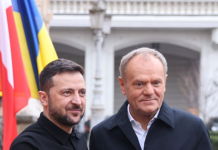





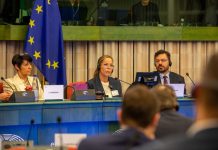




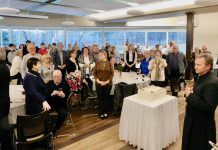

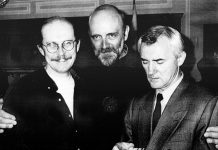


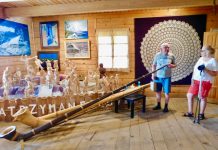


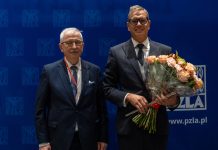


















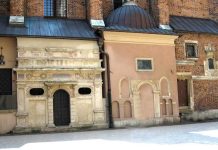
















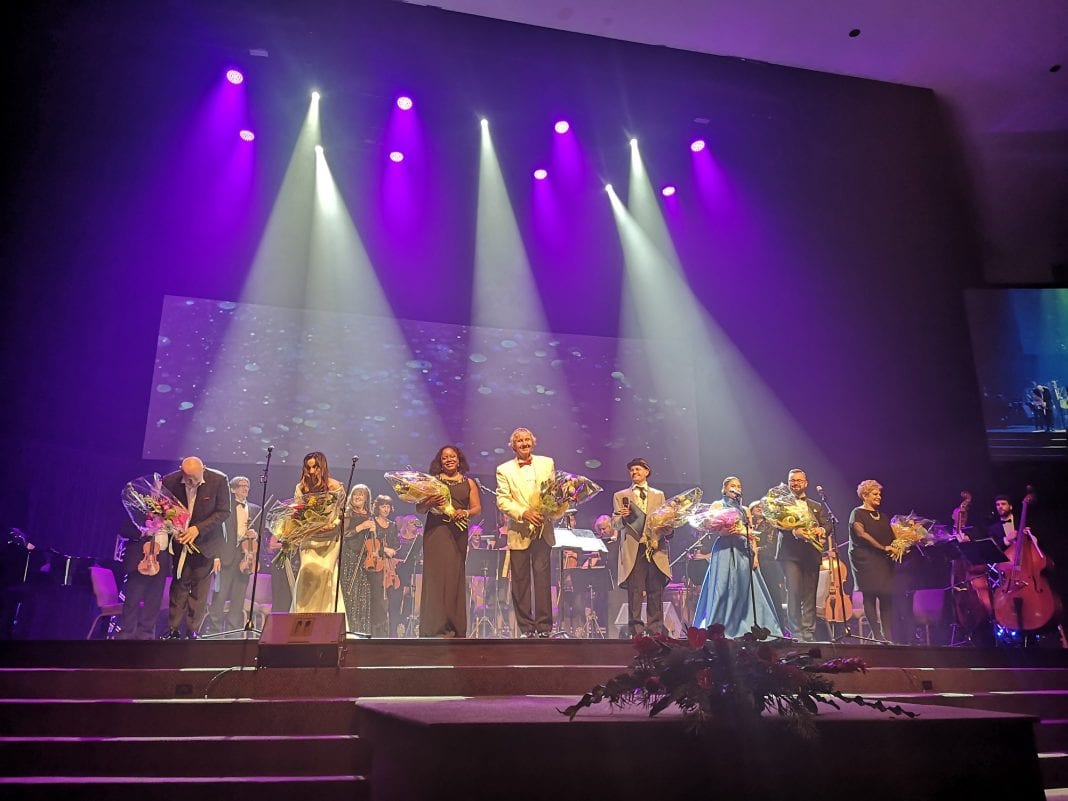


.jpg)

